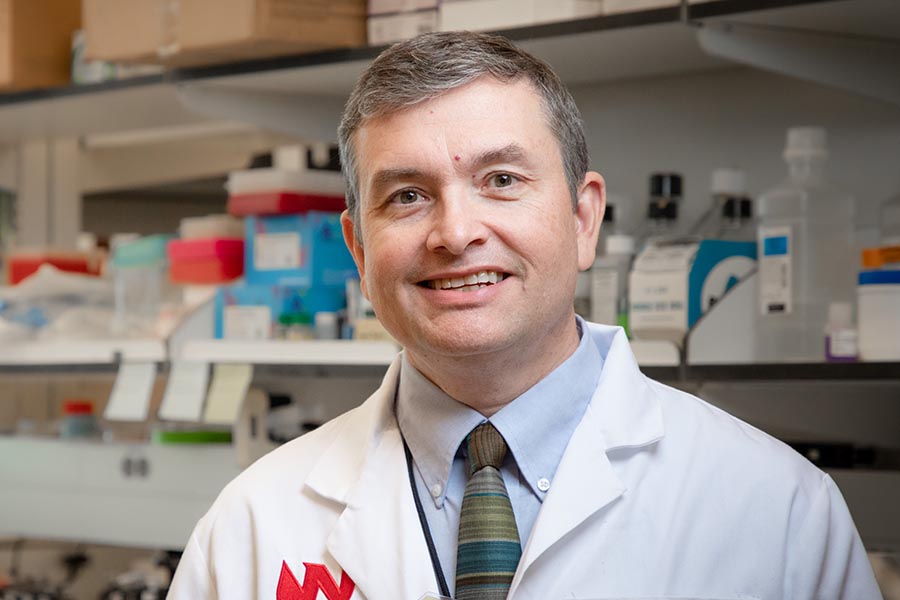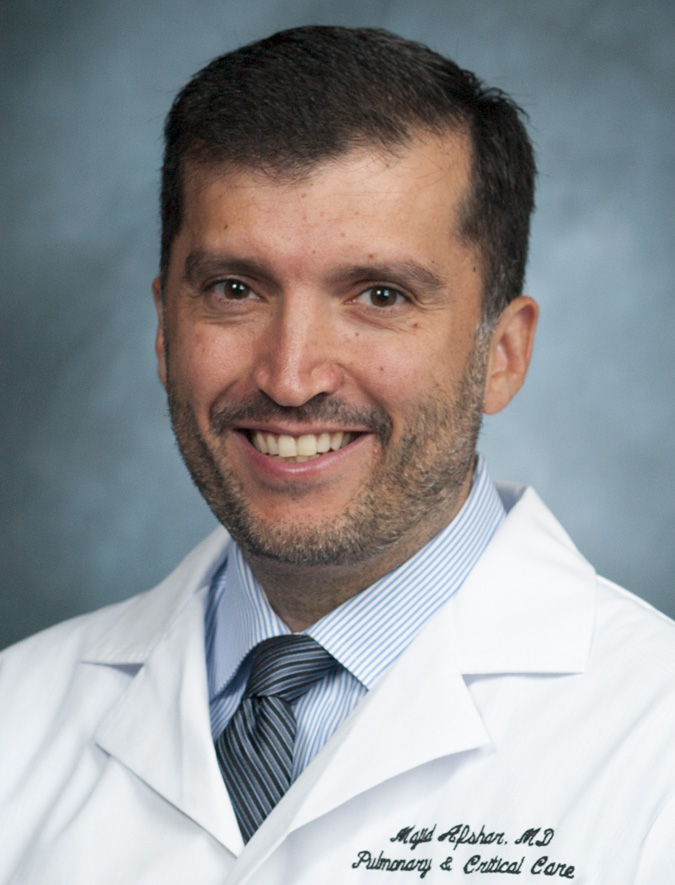CoPARC Steering Committee Members

Mashkoor A. Choudhry, PhD
Dr. Choudhry is the Lead CoPARC Investigator at the Loyola University Chicago (LUC) site, as well as the Director of the Alcohol Research Program at LUC. Additionally, he is the Program Director of the NIAAA-supported T32AA013527 that provides training in the neuroimmunoendocrine effects of alcohol, and co-director of the T32GM008750 that supports training in burn and trauma research. Dr. Choudhry has the access and infrastructure to contribute clinical samples and data obtained from burn patients hospitalized in the Intensive Care Unit at Loyola Hospital. His research focus has been to examine the clinical outcomes and immune dysfunction from alcohol exposure in both burn-injured patients and lung transplant recipients. He serves as a member of CoPARC’s steering committee to review Resource requests, and advise/mentor new or junior investigators interested in alcohol research.

Kristina Bailey, MD
Dr. Bailey will contribute samples for the CoPARC biorepository that are received as part of the UNMC Lung Transplant Database and Biorepository. Her research laboratory studies the regulation of the innate immunity of the lung, particularly how alcohol intake affects lung health in terms of airway diseases such as chronic bronchitis. Dr. Bailey will oversee projects related to TLR expression in bronchial airway epithelial cells, inflammatory markers in bronchoalveolar lavage, and physiologic measures in enrolled CoPARC subjects.

Elizabeth Kovacs, PhD
Dr. Kovacs the Director of Burn Research in the Department of Surgery at the University of Colorado Denver. For more than two decades, her laboratory has been studying models of tissue injury and repair with a focus on the role of leukocytes and inflammatory mediators. She has worked with leukocyte subsets isolated from the blood and lung of burn patients with inhalation injury, smokers, drinkers and lung transplant recipients, as well as the blood, lungs, liver, intestine and skin obtained from mice subjected to injury. Much of her recent work revolves around immune and inflammatory responses in the context of aging. Further, she has been studying the combined insult of binge alcohol and injury, exploring the role of leukocyte subsets, fibroblasts, and endothelial and epithelial cells in end organ damage. The laboratory is actively examining both mechanisms of action and therapeutic interventions designed to manipulate the inflammatory milieu and restore normal tissue architecture.

Todd Wyatt, PhD
The research in Dr. Wyatt's laboratory is directed toward the understanding of airway epithelial cell function under physiologic and disease conditions. He is interested in the mechanistic signal transduction pathways that define ciliary beating, pro-inflammatory cytokine production, remodeling and wound repair, and cell adhesion under conditions of cigarette smoking and alcohol consumption. His studies aim to define the role of serine-threonine protein kinases and the second messengers that regulate these enzymes in lung epithelial function. Dr. Wyatt has extensive experience in animal models of alcohol consumption that are invaluable to establishing mechanistic investigations tested with CoPARC samples.

Majid Afshar, MD
Dr. Afshar is a Board Certified Pulmonary and Critical Care physician who routinely cares for critically ill ICU patients. His research focuses on understanding the pathophysiology of respiratory failure in the setting of trauma and burn injury. Through his past training, he has gained extensive expertise in large data analyses for epidemiologic investigations involving critically ill patients, and has developed a collaborative network to facilitate these projects. His lab identified hazardous alcohol use in critically ill patients via examination of direct alcohol biomarkers, including phosphatidylethanol (PEth). Further projects characterize and quantify plasma biomarkers in the setting of burn injury on the development of ARDS and respiratory failure. Dr. Afshar will also be engaged in projects that utilize large or administrative data sets to examine the impact of AUDs on outcomes in cohorts of critically ill patients.

Ellen L. Burnham, MD,MS
Dr. Burnham is the director (principal investigator) of CoPARC. Dr. Burnham’s research centers on investigations delineating the relationship between alcohol and substance misuse and critical illness, including pneumonia and the acute respiratory distress syndrome (ARDS). Her work focuses on understanding fundamental alterations in lung immunity related to substance misuse that predisposes individuals to develop severe pulmonary infections. Her research highlights the importance of identifying substance use (particularly alcohol misuse) as a common modifiable risk factor driving pulmonary infections and lung injury. Since 2011, Dr. Burnham has served as the PI for CoPARC to support clinical and translational research for investigators across the US, including fellows and junior faculty. She has also received additional extramural research support to examine the intersection between alcohol and cannabis use, and the impact of alcohol misuse on outcomes in COVID-19 associated ARDS. Finally, she has been the site PI for a number of NIH-funded clinical trials investigating therapies for sepsis and ARDS.

David Welsh, MD
Dr. Welsh received training in Internal Medicine at Vanderbilt University Medical Center before completing a fellowship in Pulmonary and Critical Care at LSU. He oversees the HIV Chest Clinic and provides inpatient clinical care at LSU affiliated facilities.

Samantha Yeligar, MS, PhD
Dr. Yeligar is a faculty member with interests and expertise in alveolar macrophage biology as it is affected by alcohol-induced oxidative stress, with expertise in murine models of alcohol-associated lung disease. Dr. Yeligar will oversee the project performance of the Emory component of this project, including serving on the Data and Sample Sharing Committee (DSSC) to help determine current and future plans and trajectories for CoPARC.
Contact us
General Questions
Research Studio and Request Questions